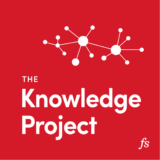If you think talent and hard work give top athletes all the leverage to succeed, think again. As employees in the Sports-Industrial Complex, they’ve got a ...
.lightweight-accordion { border: 1px solid #ccc; border-radius: 4px; padding: 5px; margin: 5px 0; } .time { font-size: 0.875rem; /* Option 3: Using rem ...
.lightweight-accordion { border: 1px solid #ccc; border-radius: 4px; padding: 5px; margin: 5px 0; } .time { font-size: 0.875rem; /* Option 3: Using rem ...
In Chapter 3 of The Diary of a CEO I talk about the importance of trusting more. I am a real perfectionist and feel trapped between wanting to control even the ...
A conversation with the Shark Tank star, entrepreneur, and Dallas Mavericks owner recorded for the Freakonomics Radio series “The Hidden Side of Sports.”
“What I want is immortality,” Jack told me. “But I don’t want it in my name, I want it in actions of others.” With the size of his audience today ...
For most of us, the athletes are what make sports interesting. But if you own the team or run the league, your players are essentially very expensive migrant ...
Josh Wolfe, co-founder of Lux Capital discusses how to unearth the unexplored ideas that will reshape our future. We also talk about parenting, ...
In Chapter 2 of Season 2 of The Diary of a CEO I flew to LA to meet Sarah Bahbah, the 26 year old Palestinian-Australian Artist, Writer and Director. Sarah ...
A conversation with former Major League Baseball player and current ESPN analyst Mark Teixeira, recorded for the Freakonomics Radio series “The Hidden Side of ...
With 250 million active users, Pinterest is a content discovery platform nearly every blogger and business owner should be spending some time on. The Pinterest ...
Great athletes aren’t just great at the physical stuff. They’ve also learned how to handle pressure, overcome fear, and stay focused. Here’s the good news: you ...








